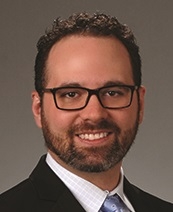A bigger leadership role for physicians can help drive the transformation healthcare needs, but both hospitals and doctors must do their part to make it work.

The ideal physician leader will put his or her ego aside in order to work well with the C-suite and board members, Jason Petros, a consultant with Witt/Kieffer, told FierceHealthcare in an exclusive interview.
They must break free of the perception that a doctor is “a great team leader but not a great team player,” Petros says. Rather, he says, the ideal physician leader is a “player-coach.”
The problem, he says, is most executives in high-stress situations will revert to whichever strategy they’re most comfortable with--and for physicians that often means an autocratic leadership style that simply doesn’t work for the C-suite.
But that doesn't leave senior hospital administrators off the hook. They must also empower and engage physicians, he says.
“Physician engagement doesn’t mean ‘thank you for your opinion, we’re going to put it in the circular file,’” Petros says. “What we’re really talking about is empowering physicians to sit at the highest levels of the organization as they’re making decisions related to clinical care delivery.”
And as the healthcare industry puts more and more weight on care quality and population health, this means the time is right for physician leaders to shine.
“There’s nobody better who can engage physicians than a physician executive,” Petros says. But this goes further than simply the CEO level; healthcare leaders must think about physician leaders throughout the C-suite. "I would challenge boards to think a couple levels down in terms of succession planning, particularly as it relates to physicians," he says.